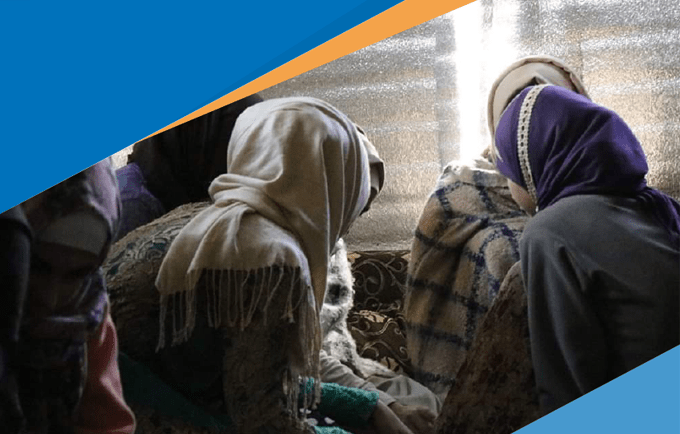Amman, JORDAN, 15 May 2020 – The COVID-19 pandemic is changing the manner in which millions of women, men, girls and boys across the world live. Jordan, a country hosting more than 700 000 refugees in a complex region of the globe, has like most other countries been deeply affected by the impact of COVID-19 on its economy and social system. During April 2020, the UNFPA Jordan Country Office in coordination with Plan International and the Institute for Family Health (IFH)/Noor Al Hussein Foundation commissioned a rapid assessment of the COVID-19 situation in Jordan. The overall purpose of this rapid assessment was to measure the impact of COVID-19 on gender-based violence and sexual and reproductive health rights among adolescent girls and young women in Jordan, including persons with disabilities (PwD).
The assessment results demonstrate that the COVID-19 pandemic restrictions have led to greater uncertainty, stress, and health and psychological risks for women and girls, many of whom already face challenges of entrenched gender inequality and discrimination. Gender-based violence—particularly domestic violence— has increased during the pandemic: with 69 percent of all survey respondents and informants advising of increasing prevalence. Not unlike other countries in which UNFPA works, emotional and physical abuse—often perpetrated by an intimate partner or member of the family—have been the most commonly occurring form of abuse.
As Sexual and Reproductive Health services and products are curtailed, women and girls risk losing control over their bodies, equating to a loss of control and agency over their lives and futures. In short, the rights of women, girls, and young people are profoundly threatened by the pandemic, and there is a need for concerted, assertive action on the part of the UN, civil society, the government, and donors to ensure the protection and empowerment of women and girls in Jordan.
With the May 2020 timely arrival of UNFPA Jordan’s new Country Representative, Ms. Enshrah Ahmed, the Country Office will continue to serve local communities through civil society organisations, so as to support all survivors of abuse and violence, diversifying our approaches to adapt to the complexities of the COVID-19 operating environment. UNFPA Jordan in partnership with the Government of Jordan and all of our partners will ensure gender based violence and sexual and reproductive health services are prioritised as a life-saving response during the current quarantine and curfew context within Jordan.
“During these critical times, it is important we continue to shine a light on the issues faced by the most vulnerable members of our society; girls and young women. They will not only face the direct health threats posed by COVID-19, but will also be particularly affected by the secondary impacts of the outbreak as during the lockdown, they are more at risk of suffering gender based violence, and losing vital access to their sexual and reproductive health rights” Muna Abbas, Country Director, Plan International Jordan
To ensure the safety and well-being of girls and young women, Plan International will continue to place their needs and rights at the center of our efforts as the COVID-19 crisis unfolds. By working with communities, the national government, and partners, Plan International will help guarantee that the rights of a young generation are highlighted, safeguarded, and included in Jordan’s continued response plans.
"The Institute for Family Health IFH will continue to contribute to the national efforts in responding to the consequences of COVID19 especially providing safe access to SRH and SGBV services to the most vulnerable populations from refugees and host communities" Dr. Ibrahim Aqel, Director of the Institute for Family Health IFH.
The entire report can be downloaded here: https://jordan.unfpa.org/en/node/48389


